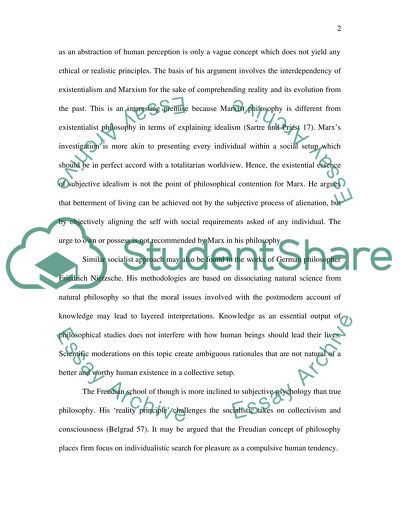Philosophy, the second Topic Essay Example | Topics and Well Written Essays - 500 words. Retrieved from https://studentshare.org/miscellaneous/1559622-philosophy-the-second-topic
Philosophy, the Second Topic Essay Example | Topics and Well Written Essays - 500 Words. https://studentshare.org/miscellaneous/1559622-philosophy-the-second-topic.


